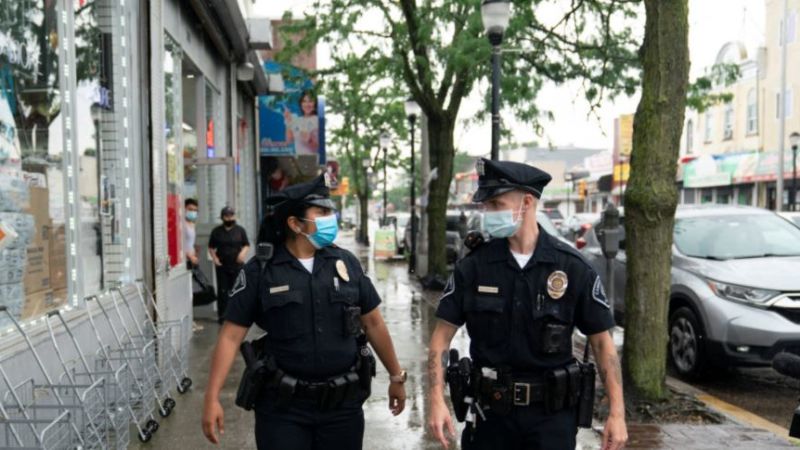Community policing tactics and police training has taken on renewed importance amid recent social unrest over incidents of police violence.
Today, police officers handle a wide range of situations from taking routine traffic reports to more complicated incidents such as criminal activity, substance abuse, homelessness, and mental illness. And clearly, proper training is the bedrock of any police program. And this is particularly important during a time when incidents of lethal violence involving law enforcement and persons of color have resulted in lost lives, social unrest, and the trust between citizens and the police becoming further frayed.
As a result, state legislatures in 2020 began crafting bills to address common-sense police reform, with many calling for reform in how we train police officers as a cornerstone to building back that trust and creating a foundation of ethical policing and improved community relations.
The importance of the FTO program
As with many jobs, after recruits graduate from “college” — often in this case, the police academy — they move into the next step of their careers: intensive on-the-job training known as the Field Training Officer (FTO) program. This is perhaps the most important time in an officer’s educational development and the seminal moment to instill solid, community policing practices.
The FTO programs help bridge the gap between the classroom and the practical applications on the street by building a foundation for new officers that can have lasting effects on police departments, communities, and other officers.
San Francisco Police Lieutenant Tracy McCray, an officer with more than two decades of experience on the force and 20 years as an FTO, says the FTO program is vital to prepare officers and allow them to be observed as they learn. “There needs to be an evaluation and assessment period of the new officer,’ McCray says, adding that in the FTO program trainees gets first-hand experience of what they had previously only read about or seen in a classroom. The goal is to train new officers by pairing them with training officers in the field so the recruits will eventually be prepared to function for solo patrol duty.
“You have to have a lot of patience with rookie officers,” McCray says. “Adults all learn in different ways.” Despite the challenges, the rewards are endless, she adds, and when she “sees the light bulb go on” for a trainee, it is very fulfilling. “You know you’ve made a difference when you see the officer move on and help others.”
The FTO program can make a big impact on how trainee police officers understands their responsibilities and prepare for a prolonged career in law enforcement, explains McCray. “We try to expose the new recruits to different variables including working different shifts, at night and during the day,” she says. And today, recruits are getting constant feedback from the digital landscape of the community with the proliferation of technology like cell phone cameras and websites such Nextdoor, a hyperlocal social networking service for neighborhoods.
Training community policing
Learning the foundations of ethical policing at the beginning is crucial, McCray says. “Just start off doing the right thing and you won’t have to worry about anything else,” she explains, adding that it’s also vital to instill leadership skills into the police trainee early in the process. She emphasizes the importance of treating everyone the same, not matter in which part of the community they live. It’s also important for officers to remember that some citizens have had a variety of experiences in life, including traumas caused by interaction with the police. “I want officers to take others’ life experiences into account,” she says. “You are in a service industry and the trainee should not forget that.”

“I want officers to take others’ life experiences into account. You are in a service industry and the trainee should not forget that.”
— SF Police Lt. Tracy McCray
New officers also should be taught to proactively speak up if you see a fellow officer doing something that doesn’t feel right, like what happened in the incident with George Floyd’s murder in 2020. McCray says she challenges the idea of a “blue wall of silence” and tells new officers, this is your scene, you’re in charge, and you must speak up if you see any sort of malfeasance. “This isn’t some 1970’s cop show,” she adds. “You want to go home at the end of your shift with everything intact including your integrity.”
How to evaluate a new police officer
Throughout the FTO program, McCray says her goal is to train quality police officers; however, some people may not have the personality or life experiences to handle the stress of the job. While McCray admits that some critics have said she is tough on new recruits in the program — the retention rate for new officers was a “low 68%” — she says she believes it is important to identify if a person isn’t ready to be a cop. “You might be a nice person, but this job isn’t for you, and someone has to tell you that.”
For example, some of the reasons a recruit might not pass the FTO program, most commonly include: i) fear for the recruit’s safety and the safety of others; ii) recruit does not follow proper police procedure (i.e., rules, general orders of the departments, and applicable laws); and iii) recruit fails to complete appropriate paperwork in a timely, concise, and acceptable manner.
The idea that a recruit can’t cut it can be hard for the new officer to hear, but it’s better for the safety of the community for the recruit to find out sooner. Sometimes the officer might just need more life experience or training outside of the force; other times, it is just not the right job for the person. And McCray isn’t shy about vocalizing that. “I’m doing a greater service by letting the new officer know now, rather than allowing them to potentially go out onto the street and hurt people,” she says.
At the end of the 16-week FTO program, McCray says that supervising officers should evaluate their trainees on the following criteria:
-
-
-
- Does the recruit perform competently on a consistent basis (with occasional, isolated, non-critical mistakes)?
- Does the recruit require immediate supervision by an FTO or are they competent enough to safely be on patrol without a partner?
- Is the supervising officer comfortable with the recruit working competently “on their own” with fellow officers?
-
-
There are other observable factors as well. While a trainee might be incredibly intelligent, this job requires emotional intelligence much more than academic intelligence. And common sense is an essential asset the trainee must possess — and one that often cannot be learned in 16 weeks. “Common sense goes a long way — a person may be incredibly book smart but lack people skills.”
Indeed, police work requires constant learning and growing. New police officers will make mistakes, of course, but it is how they look at those mistakes and develop over time that indicates whether they will be a successful public servant to their community, according to McCray. “We’re humans, so we’re going to make errors, but can we learn from that situation the next time it comes up?”







